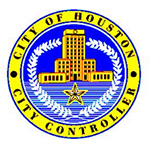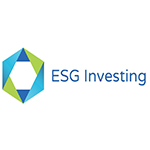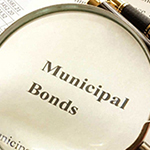
 Treasury Division
Treasury Division
The Treasury Division is responsible for managing the City’s $6 billion investment portfolio, $14 billion debt portfolio and entire City’s banking system in accordance with state law and the City’s policy internally. Fitch Ratings as awarded the City’s general investment portfolio its highest rating, AAA. The City has multiple general obligation, combined utility system, and airport system commercial paper programs with total authorization of $2.025 billion. (GO program of 1.025 billion; CUS program of 1.000 billion; Airport of $800.00 million) The current issuance capacity of the general obligation commercial paper program is $550 million which is supported by credit facilities or line credit, while $475 million is appropriated. The City of Houston also has combined utility system commercial paper program of $475 million which is supported by credit facilities or line credit, while $525 million is appropriated for combined utilities and $800 million authorized CP (commercial paper) for Houston Airport System. More About the Treasury Division ...
Disclaimer Report
 All information on this site has been furnished or obtained by the City from sources believed to be accurate and reliable but is not guaranteed. Because of the possibility of human and mechanical error as well as other factors, the information in this site is provided "as is" without warranty of any kind, including, but not limited to implied warranties of merchantability, fitness for a particular purpose, freedom from contamination by computer viruses and non-infringement ... More Disclaimer Info...
All information on this site has been furnished or obtained by the City from sources believed to be accurate and reliable but is not guaranteed. Because of the possibility of human and mechanical error as well as other factors, the information in this site is provided "as is" without warranty of any kind, including, but not limited to implied warranties of merchantability, fitness for a particular purpose, freedom from contamination by computer viruses and non-infringement ... More Disclaimer Info...
SWAP Quarterly Report
 The objective of the swaps is to hedge against the potential of rising interest rates associated with the Bonds and to achieve a lower fixed rate than the market rate for traditional fixed rate debt at time of issuance. The notional amounts of the 2004B SWAP agreement totals $653.3 million and the RBC 2018C SWAP total notional amount is $249 million, the principal amount of the associated Bonds. The City’s swap agreements contain scheduled reductions to outstanding notional ... More SWAP Information ...
The objective of the swaps is to hedge against the potential of rising interest rates associated with the Bonds and to achieve a lower fixed rate than the market rate for traditional fixed rate debt at time of issuance. The notional amounts of the 2004B SWAP agreement totals $653.3 million and the RBC 2018C SWAP total notional amount is $249 million, the principal amount of the associated Bonds. The City’s swap agreements contain scheduled reductions to outstanding notional ... More SWAP Information ...
Investment Reports
 The Treasury Division is responsible for managing the City’s $6 billion investment portfolio investment portfolio in accordance with state law and the City’s investment policy. Fitch has awarded the City’s general investment its highest portfolio rating, AAA. The City of Houston invest public funds in a manner which will provide the highest investment return with the maximum security while meeting the daily cash flow demands of the City and conforming to all state and local statutes governing the investment of public funds. ... More Investment Reports
The Treasury Division is responsible for managing the City’s $6 billion investment portfolio investment portfolio in accordance with state law and the City’s investment policy. Fitch has awarded the City’s general investment its highest portfolio rating, AAA. The City of Houston invest public funds in a manner which will provide the highest investment return with the maximum security while meeting the daily cash flow demands of the City and conforming to all state and local statutes governing the investment of public funds. ... More Investment Reports
Debt Transparency Report
 The 84th Legislature passed HB 1378 to increase the transparency of local government debt. Under Local Government Code §140.008, political subdivisions, including counties, cities, school districts, junior college districts, special purpose districts, and other subdivisions of state government must annually compile their debt obligation data from the preceding fiscal year. The City of Houston has posted its Debt Transparency Report that displays Houston’s individual outstanding debt obligations for General Obligation, Airport System, ... More Debt Transparency Info ...
The 84th Legislature passed HB 1378 to increase the transparency of local government debt. Under Local Government Code §140.008, political subdivisions, including counties, cities, school districts, junior college districts, special purpose districts, and other subdivisions of state government must annually compile their debt obligation data from the preceding fiscal year. The City of Houston has posted its Debt Transparency Report that displays Houston’s individual outstanding debt obligations for General Obligation, Airport System, ... More Debt Transparency Info ...
ESG Investing
 The investment initiative to fully integrate environment, social, and governance (ESG) consideration into investment decision-making process will solidify Houston’s place as a leader on responsible investment, generating higher risk-adjusted returns and making an impact on Houston’s broader priorities. ESG investing drives better risk-adjusted returns, since companies that score higher on ESG facts tend to have stronger fundamentals that mitigate financial risk, ... More ESG Investing ...
The investment initiative to fully integrate environment, social, and governance (ESG) consideration into investment decision-making process will solidify Houston’s place as a leader on responsible investment, generating higher risk-adjusted returns and making an impact on Houston’s broader priorities. ESG investing drives better risk-adjusted returns, since companies that score higher on ESG facts tend to have stronger fundamentals that mitigate financial risk, ... More ESG Investing ...
Why Purchase City Municipal Bonds?
 Municipal bonds have been essential to Houston’s growth. I am not sure most of the people who back them - the taxpayers - know the true value of municipal bonds. In short, bonds have allowed the City of Houston to accommodate all the new citizens in our city, over a quarter million moving here from other U.S. towns and cities just in the last decade. The City of Houston have about 2.2 million people and about 4 million + in surrounding areas. ... More City Municipal Bonds ...
Municipal bonds have been essential to Houston’s growth. I am not sure most of the people who back them - the taxpayers - know the true value of municipal bonds. In short, bonds have allowed the City of Houston to accommodate all the new citizens in our city, over a quarter million moving here from other U.S. towns and cities just in the last decade. The City of Houston have about 2.2 million people and about 4 million + in surrounding areas. ... More City Municipal Bonds ...
COH Index & Treasury Rates Tracking
 The Treasury Division is responsible in tracking the available indexes, LIBOR, SOFR, VRDOs, SIFMA , and Treasury Rate as it relates to the City’s outstanding Bonds Obligations and structure. The Treasury Department also track the MMD (Municipal Market Data) as it per to the yield curve which is the most widely referenced yield curve in the municipal bond market. ... More Index Tracking ...
The Treasury Division is responsible in tracking the available indexes, LIBOR, SOFR, VRDOs, SIFMA , and Treasury Rate as it relates to the City’s outstanding Bonds Obligations and structure. The Treasury Department also track the MMD (Municipal Market Data) as it per to the yield curve which is the most widely referenced yield curve in the municipal bond market. ... More Index Tracking ...
Electronic Municipal Market Access (EMMA)
 The EMMA website is funded and operated by the Municipal Securities Rulemaking Board (MSRB), the self-regulatory organization charged by Congress with promoting a fair and efficient municipal securities market. EMMA is designated by the U. S. Securities and Exchange Commission as the official source for municipal securities data and disclosure documents. ... Go to EMMA Website ...
The EMMA website is funded and operated by the Municipal Securities Rulemaking Board (MSRB), the self-regulatory organization charged by Congress with promoting a fair and efficient municipal securities market. EMMA is designated by the U. S. Securities and Exchange Commission as the official source for municipal securities data and disclosure documents. ... Go to EMMA Website ...
Treasury Division Links
Should you have any questions or comments regarding the aforementioned Disclaimer, please feel free to reach out to the Treasury Department. The purpose of the Disclaimer is to emphasize the significance of ownership liability concerning the information presented on this page and the Treasury website.
- Disclaimer Report
- Municipal Advisory Rule Exemption Statement (.pdf)
- Fiscal Year Monthly Financial Reports
- Debt Transparency Report (.pdf)
- Investment Reports
- Trends Report
- Commercial Paper and Debt Summary (.pdf)
- Current Month OS Debt Report (.pdf)
- City of Houston - Tombstones (.pdf)
- Voter Authorized Obligations (.pdf)

